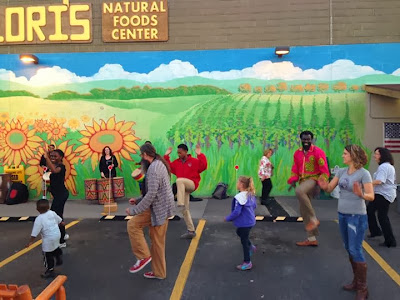 On December 20, 1993 the United Nations adopted the Declaration on the
Elimination of Violence Against Women. Following this declaration the General
Assembly designated November 15th as the International Day for the Elimination
of Violence Against Women. The United Nations has always sought to bring light
to gender equality and the violence perpetuated against women through the
Commission on the Status of Women (UNCSW). The Commission met for the
fifty-seventh session in March 2013 and stated that though progress has been
made since the founding of the organization in 1946 the Commission: “recognizes
that women’s poverty and lack of empowerment, as well as their marginalization
resulting from their exclusion from social and economic policies and from the
benefits of education and sustainable development, can place them at increased
risk of violence, and that violence against women impedes the social and
economic development of communities and States.”
On December 20, 1993 the United Nations adopted the Declaration on the
Elimination of Violence Against Women. Following this declaration the General
Assembly designated November 15th as the International Day for the Elimination
of Violence Against Women. The United Nations has always sought to bring light
to gender equality and the violence perpetuated against women through the
Commission on the Status of Women (UNCSW). The Commission met for the
fifty-seventh session in March 2013 and stated that though progress has been
made since the founding of the organization in 1946 the Commission: “recognizes
that women’s poverty and lack of empowerment, as well as their marginalization
resulting from their exclusion from social and economic policies and from the
benefits of education and sustainable development, can place them at increased
risk of violence, and that violence against women impedes the social and
economic development of communities and States.”
Alaffia has been working to alleviate poverty and empower women for the
past ten years. We are encouraged in our mission when we read statements like
these made by the UNCSW. We believe that working towards empowering women can
also protect women from violence. We also whole heartily agree that
marginalizing women in society damages social and economic development not just
for women, but for the entire nation. By providing a fair wage, a safe work
environment, and community projects to empower women in West Africa we know we
are playing an active role in ending the cycle of violence against women. We will continue working towards a future free
of not just violence against women, but any act that keeps women from being
fully engaged both socially and economically.
 To bring awareness to this grave issue, and to honor those who have
suffered, Alaffia has donated hair and
beauty products to Olympia’s Safe Place. Safe Place is an advocacy agency that offers
a confidential shelter to those who have been a victim of domestic abuse. Over
the next several days, Alaffia will observe the United Nation’s 16 Days of
Activism Against Gender Violence that leads up to Human Rights Day with stories
highlighting how empowerment and fair trade are combating gender violence.
To bring awareness to this grave issue, and to honor those who have
suffered, Alaffia has donated hair and
beauty products to Olympia’s Safe Place. Safe Place is an advocacy agency that offers
a confidential shelter to those who have been a victim of domestic abuse. Over
the next several days, Alaffia will observe the United Nation’s 16 Days of
Activism Against Gender Violence that leads up to Human Rights Day with stories
highlighting how empowerment and fair trade are combating gender violence. 














